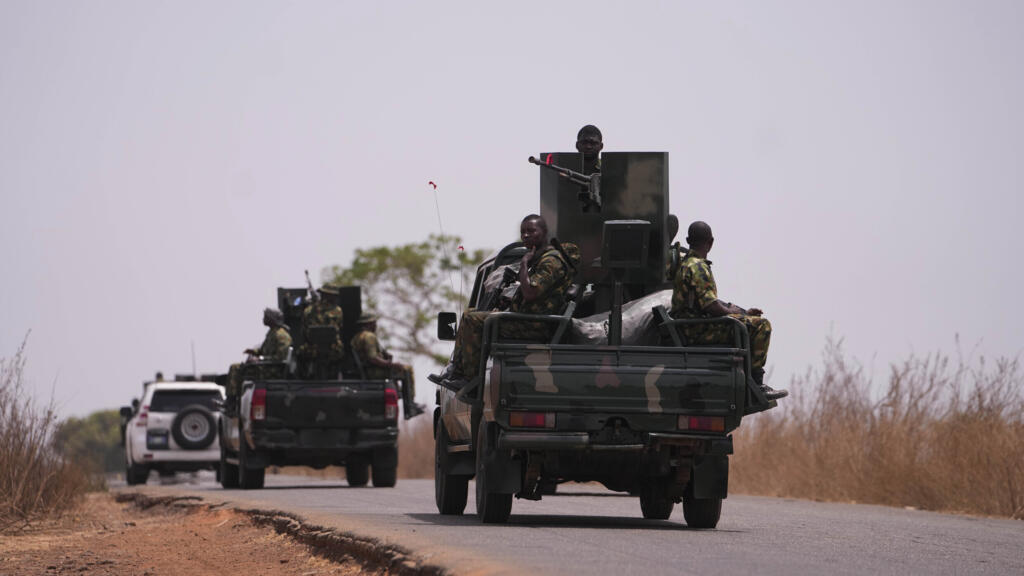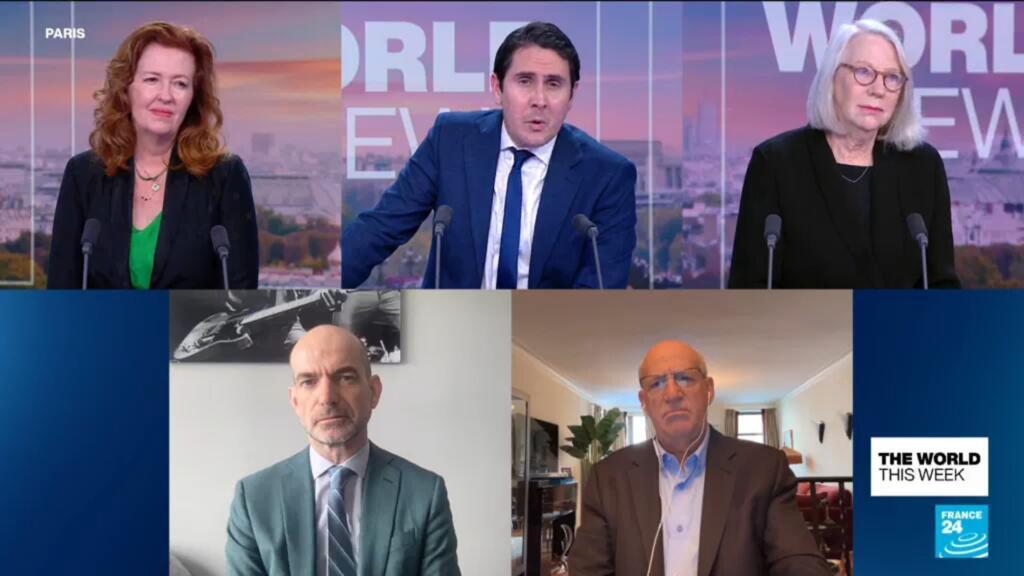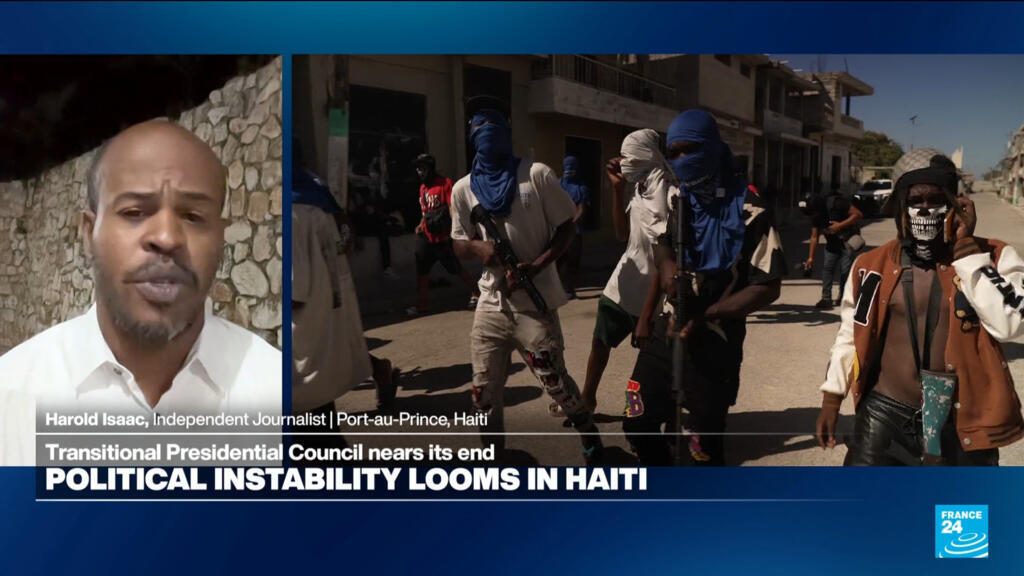UN envoy won’t return to Myanmar unless she can meet with Aung San Suu Kyi
Noeleen Heyzer says she also has repeatedly called for the immediate halt of military attacks on civilians.

The United Nations special envoy to Myanmar said she will not return to the country unless she is allowed to meet with jailed former leader Aung San Suu Kyi, as she defended an initial visit to the Southeast Asian nation where she held talks with the country’s military rulers.
Noeleen Heyzer, the special envoy of the U.N. secretary-general, discussed the situation in Myanmar, which has been rocked by violence since the military’s February 2021 coup, at a meeting on Monday at the Yusof Ishak Institute for Southeast Asian Studies in Singapore.
Heyzer met in August with senior military regime leaders, including junta chief Snr. Gen. Min Aung Hlaing, in the capital Naypyidaw during her first visit to Myanmar nine months after her appointment. At the time, critics warned her visit risked giving legitimacy to the regime.
But the junta, which ousted a democratically elected government, declined her request to see Suu Kyi, who has been sentenced to more than 20 years in prison on various charges.
“If I ever visit Myanmar again, it will only be if I can meet with Daw [honorific] Aung San Suu Kyi,” Heyzer said in key highlights from the remarks at the seminar.
While in Myanmar, Heyzer called on the junta to stop its violence against civilians.
“I have repeatedly called for the immediate cessation of aerial bombings and a humanitarian pause in targeted areas to allow for effective and safe access, and the urgent delivery of assistance through all existing channels to address the multiple humanitarian needs and vulnerabilities,” she said in her seminar remarks.
Heyzer also said she held extensive and regular discussions with the opposition National League for Democracy, the parallel National Unity Government (NUG) and ethnic armed groups. She said she is trying to determine the true situation on the ground by continuing to interact with members of the Committee Representing Pyidaungsu Hluttaw (CRPH), formed by lawmakers who were unable to take their seats because of the coup, civil society organizations, women’s groups, human rights groups and ethnic war refugees.
Heyzer said she went to Naypyidaw and met with the junta leaders because it was important to engage all stakeholders in Myanmar and to act as a bridge between Myanmar and regional stakeholders and the international community.
During Heyzer’s visit in August, Min Aung Hlaing indicated that he might allow her to meet Suu Kyi, who has now been sentenced to hard labor and imprisonment on what rights groups say are trumped-up charges by the military regime.
“In response to my request to meet State Counselor Aung San Suu Kyi, the senior general indicated the possibility of a meeting eventually,” Heyzer said in her remarks. “I am now very concerned about her health and well-being, and condemn her sentencing to hard labor.”
During her address to more than 200 virtual and in-person attendees, Heyzer said there was deep distrust among stakeholder groups in Myanmar and that it was not easy to hold a dialogue with them.
Heyzer also said she visited Bangladesh after her trip to Myanmar to meet with Prime Minister Sheikh Hasina and inspect Rohingya refugee camps in the Cox’s Bazar area. She is urging Association of Southeast Asian member states to create a regional framework to protect the refugees from Myanmar, who were driven out of the country by a brutal military crackdown in 2017.
There is no clear path regarding the crisis in Myanmar and no easy way to resolve it, Heyzer said. The U.N. and the international community have limitations in what they can do, and there are differences of opinion among U.N. member states regarding the crisis in Myanmar.
She said it is impossible to force solutions from outside the country to solve the crisis, but that regional organizations and international governments must listen to the voices of the Burmese people.
“A multidimensional catastrophe will emerge” unless the regional and international communities find new ways to support a democratic future for Myanmar, she said.

'World needs to wake up'
Also on Monday, the Special Advisory Council for Myanmar (SAC-M), a group of former U.N. rights experts, said the NUG, representing the people’s resistance against the military junta, should be recognized internationally as the official government of Myanmar. It said the NUG controls most of the country’s territory.
The SAC-M was formed to monitor and record human rights violations in Myanmar after the 2021 military coup. Its members are Yanghee Lee, the U.N.’s special rapporteur on the situation of human rights in Myanmar from 2014 to 2020; Marzuki Darusman, former chair of the U.N. Independent International Fact-Finding Mission on Myanmar; and Chris Sidoti, former member of the U.N. Independent International Fact-Finding Mission on Myanmar.
“The world needs to wake up to the reality that a new Myanmar is already taking shape,” said Lee in a printed statement about a briefing paper issued by the SAC-M.
“The National Unity Government is not a shadow government or a government in exile,” she said. “It is the representative of the people’s revolution and resistance to the military junta, the combined forces of which control the majority of the country.”
The briefing paper titled “Effective Control in Myanmar” finds that the NUG and resistance organizations have effective control over 52% of Myanmar’s territory. The junta can claim to have stable control over 17% of the territory and is being actively contested in a further 23%, the report said.
“The NUG is the legitimate government of Myanmar and should have been recognized formally as such long ago,” Sidoti said in the printed statement. “But instead, there is a complete mess in the international system when it comes to Myanmar’s representation. That is depriving the Myanmar people of their voice at a time when they need it the most.
“The revolution in Myanmar will succeed. But history will not look back kindly on how we in the international system failed to stand with the people,” he said.
Kyaw Zaw, spokesman for the NUG’s presidential office, said the statement by the SAC-M described the true situation in Myanmar.
“[The NUG] is the government that represents the people. We have full legality,” he said.
“They (the military) are trying to seize power with guns,” he said. “The people accepted our government as their representative. Therefore, what Ms. Yanghee Lee had said was a true reflection of our government's position.”
The SAC-M’s report said the military council has control of only 93 townships out of 330 in the country, and 21 of those townships are controlled by subordinate militia groups.
The report goes on to point out that 16 townships in Sagaing and Magway regions — hotbeds of armed resistance to the junta — have been completely freed from the control of the military council, and that the armed resistance has begun to take over administration matters.
RFA could not reach junta spokesman Maj. Gen. Zaw Min Tun for comment.
Thein Tun Oo, executive director of the Thaningha Strategic Studies Institute, a group of former military officers, criticized the report as being largely inconsistent with the actual situation.
“We don’t know what information they have based their statement on,” he said.
“What we can say is that this statement was issued with the intention of bringing some instability to Myanmar,” he said, adding that the report was released for political purposes because a decision on the appointment of Myanmar’s permanent representative to the U.N. will be made soon.
The U.N. Credentials Committee, which includes nine member countries, will decide who will be allowed to represent Myanmar during the first session of the 77th U.N. General Assembly to be held in New York on Sept 13-27.
Translated by Khin Maung Nyane for RFA Burmese. Written in English by Roseanne Gerin.
This article has been sourced from various publicly available news platforms around the world. All intellectual property rights remain with the original publishers and authors. Unshared News does not claim ownership of the content and provides it solely for informational and educational purposes voluntarily. If you are the rightful owner and believe this content has been used improperly, please contact us for prompt removal or correction.







/cloudfront-us-east-1.images.arcpublishing.com/gray/YSYYKIUMGVGAHNG2RWEWTR7S5U.png)





